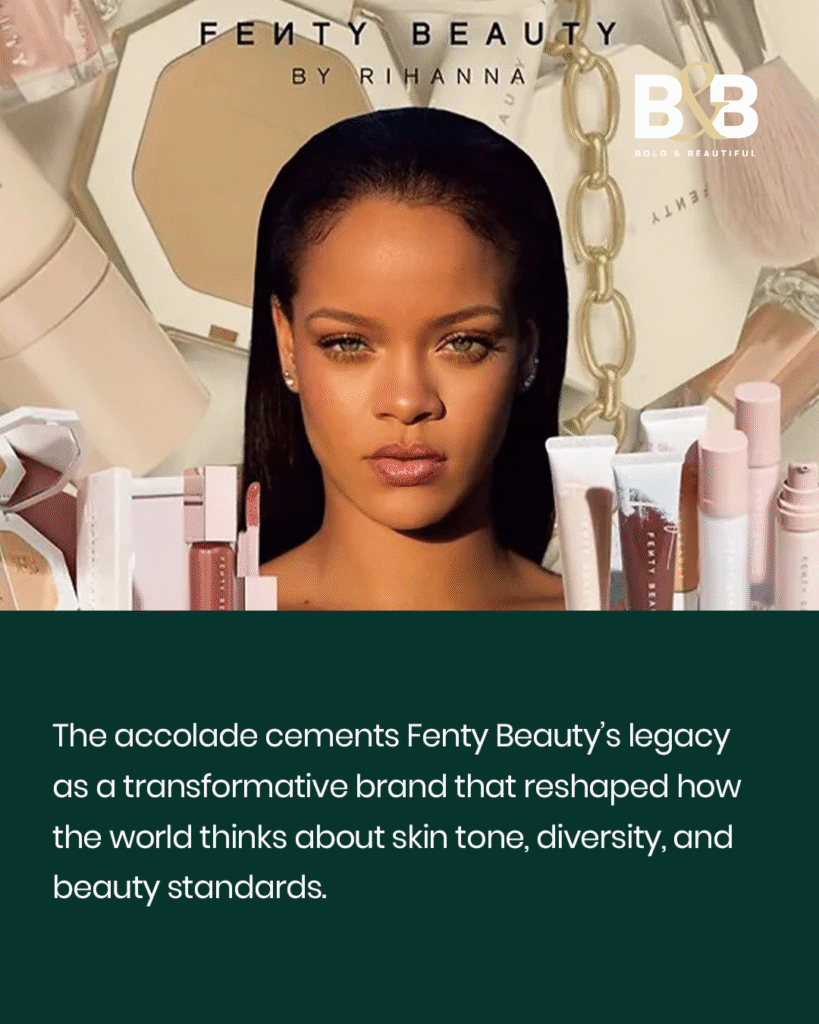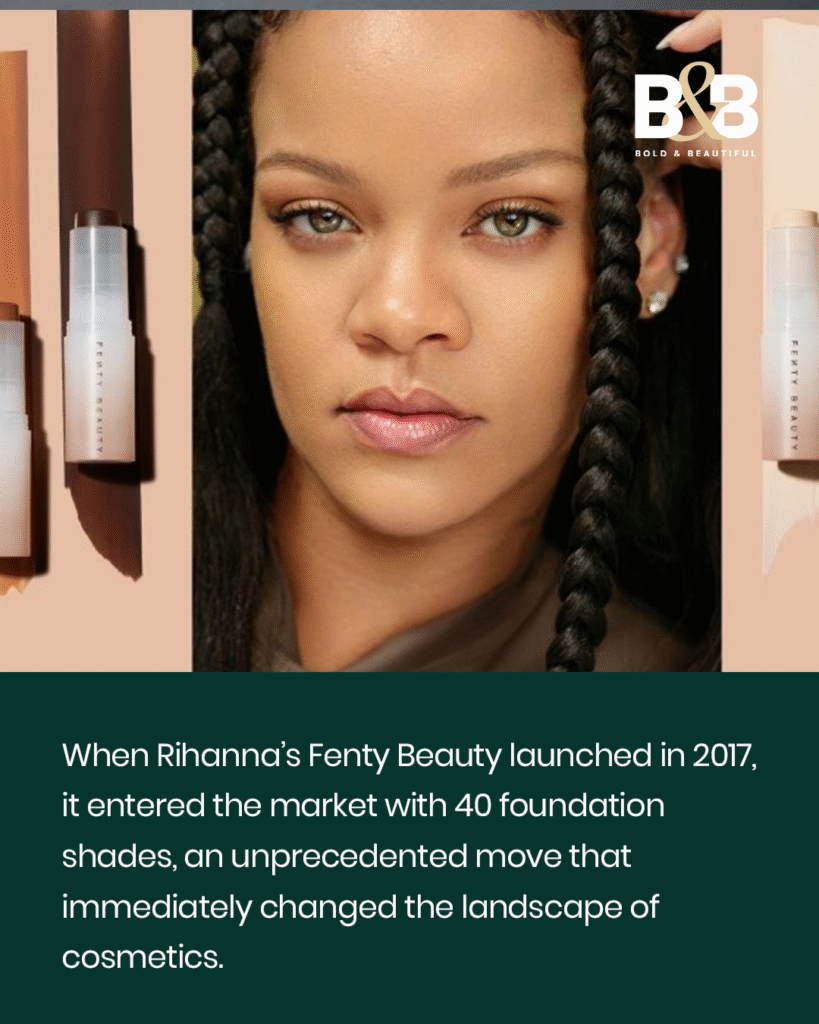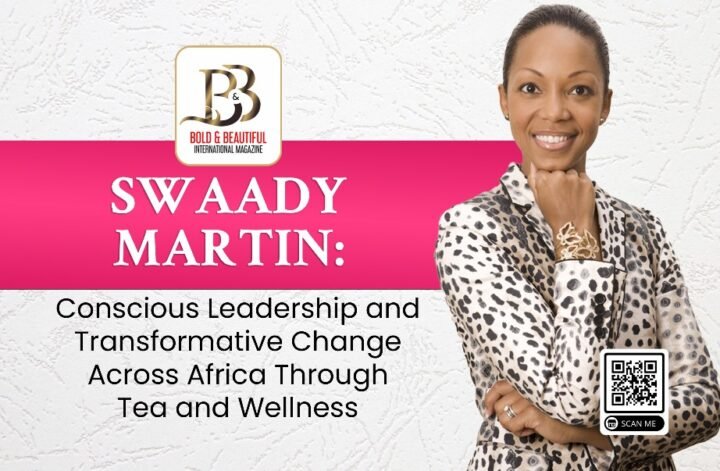TIME Magazine has named Rihanna’s Fenty Beauty foundation as one of the greatest inventions of the modern era, recognising its groundbreaking role in redefining inclusivity and representation in the global beauty industry. The accolade cements Fenty Beauty’s legacy as a transformative brand that reshaped how the world thinks about skin tone, diversity, and beauty standards.
When Fenty Beauty launched in 2017, it entered the market with 40 foundation shades, an unprecedented move that immediately changed the landscape of cosmetics.

The brand’s message was simple but powerful: beauty belongs to everyone. That philosophy struck a global chord, challenging long-standing industry norms that had often excluded darker skin tones.
The TIME honour celebrates the brand’s cultural and social impact. According to the publication, Fenty Beauty did not just release a new product line; it redefined an entire market by forcing competitors to expand their shade ranges and rethink what inclusivity means in practice.
Rihanna, who founded the brand in partnership with LVMH, expressed gratitude for the recognition.
She described the achievement as “a celebration of every person who has ever felt unseen,” emphasising that the brand’s purpose has always been about authenticity and representation rather than trend.
The foundation has since evolved to include over 50 shades, serving consumers across continents and becoming a mainstay for makeup professionals and everyday users alike. Beyond its success in sales, Fenty Beauty has become a case study in how diversity drives innovation.

Industry experts have hailed the recognition as a rare feat, positioning Rihanna among a select few entrepreneurs whose vision reshaped both commerce and culture.
The brand’s influence continues to extend beyond beauty, inspiring inclusion-focused strategies across fashion, tech, and entertainment.
TIME’s inclusion of Fenty Beauty on its list highlights the power of innovation rooted in empathy.
It acknowledges that the most lasting inventions are those that do more than solve a problem, they challenge perceptions, inspire progress, and give voice to the overlooked.





